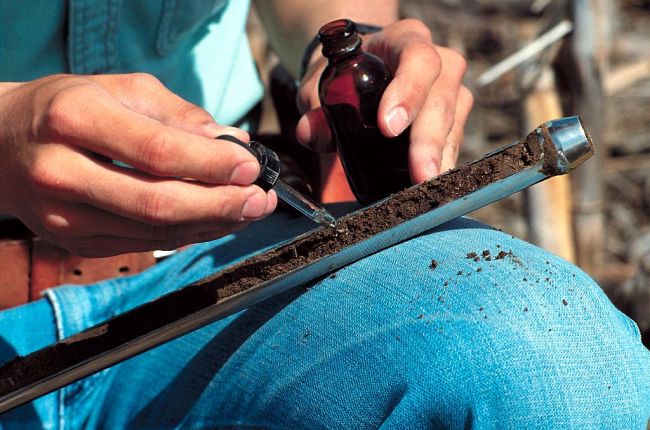
Knowing how water passes through soil is very important. For example, engineers need to know how quickly water will drain away from buildings or bridges. Drainage rates are also important to farmers, landscapers, gardeners, environmental scientists, and other professionals. Water is one chemical found in soil. There are many others. Some of the chemicals in soil are very important for plant growth. Farmers and gardeners often test their soil for these chemicals using soil-testing kits. These kits can be bought at gardening or hardware stores.
Soil-testing kits can test to see how acidic or basic a soil is. (Vinegar is acidic, and many soaps are basic.) The measure for how much acid or base there is called the pH level. A pH of 7 means that there is no more acid than base present. The solution is neutral. Lower numbers than 7 indicate acids. Higher numbers indicate the presence of bases. The pH controls how well plants use the food (nutrients) available in the soil. Different plants like different pH levels. The testing kit you use may tell you which plants do better at a given pH. The pH level in soil can be changed by adding chemicals.
Three chemicals are very important for plants. They are:
- nitrogen that affects the growth of leaves;
- phosphorus that helps roots grow strong;
- potassium that helps flowers and fruits grow.
Soil-testing kits can tell you how much of each chemical there is in a soil sample. Different plants need different amounts of these chemicals. Lawn grasses need a high level of nitrogen. Fruits need less nitrogen, but higher levels of phosphorus and potassium. Root vegetables need lower levels of nitrogen and potassium and much higher levels of phosphorus.



